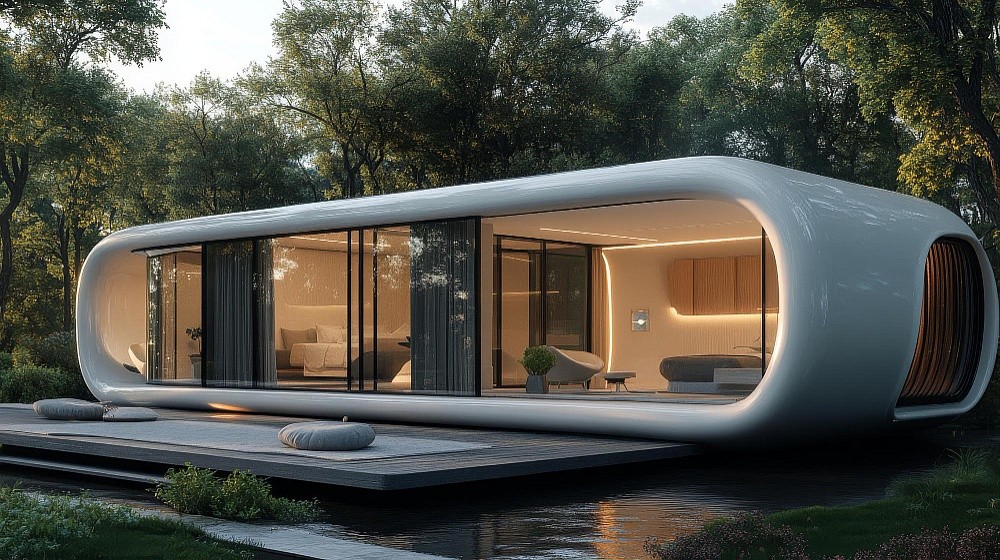1. Space Efficiency
Maximized Utilization: Capsule homes are designed to make the most of limited space, often featuring multifunctional furniture and clever storage solutions. This efficient use of every square foot allows residents to live comfortably in compact areas, making them ideal for urban settings where space is at a premium
Minimalist Living: The compact nature of these homes encourages a minimalist lifestyle, prompting residents to declutter and focus on essential belongings. This simplicity can lead to reduced stress and a clearer focus on personal priorities
2. Affordability
Cost-Effective Construction: Capsule homes are generally cheaper to construct than traditional houses. Their prefabricated nature allows for quicker assembly and lower labor costs, making homeownership more accessible to a broader demographic, including young professionals and those on a budget
Lower Utility Costs: Smaller living spaces require less energy for heating, cooling, and lighting, resulting in significantly lower utility bills. This financial benefit is particularly appealing in an era of rising living costs
3. Environmental Sustainability
Reduced Carbon Footprint: The smaller size of capsule homes means they require fewer materials for construction and less energy for maintenance. Many designs incorporate sustainable practices such as solar panels and energy-efficient appliances, contributing to a greener lifestyle
Eco-Friendly Materials: Capsule homes often utilize environmentally friendly building materials, which further minimizes their environmental impact. This aligns with the growing demand for sustainable living solutions among environmentally conscious consumers
4. Mobility and Flexibility
Portable Living: Many capsule homes are designed to be mobile, allowing residents to relocate easily based on personal or professional needs. This flexibility is particularly advantageous for those who desire a change of scenery or need temporary housing solutions
Adaptable Designs: Capsule homes can be customized or expanded according to the changing needs of residents, making them suitable for various life stages or circumstances. This adaptability enhances their appeal as a long-term housing solution
5. Innovative Technology Integration
Smart Home Features: Many capsule homes are equipped with advanced technology, including smart home systems that allow residents to control lighting, heating, security, and other functions through mobile devices. This integration enhances convenience and energy efficiency
Sustainable Innovations: Future capsule homes are expected to incorporate cutting-edge technologies such as automated energy management systems and climate control solutions that further reduce environmental impact while improving comfort
6. Community Living Opportunities
Co-Living Models: Capsule homes can be integrated into co-living arrangements that foster social interaction among residents. Shared amenities and communal spaces promote collaboration and community building, which can enhance the living experience
Addressing Urban Housing Crises: As cities become more densely populated, capsule homes provide a viable solution to housing shortages by optimizing land use without contributing to urban sprawl. They support sustainable urban development by offering affordable housing options in high-demand areas
In summary, capsule mobile homes present a forward-thinking approach to modern living that prioritizes efficiency, affordability, sustainability, and flexibility. As urbanization continues to rise and environmental concerns become more pressing, these innovative housing solutions are likely to gain popularity as practical alternatives to traditional housing models in the coming years.


